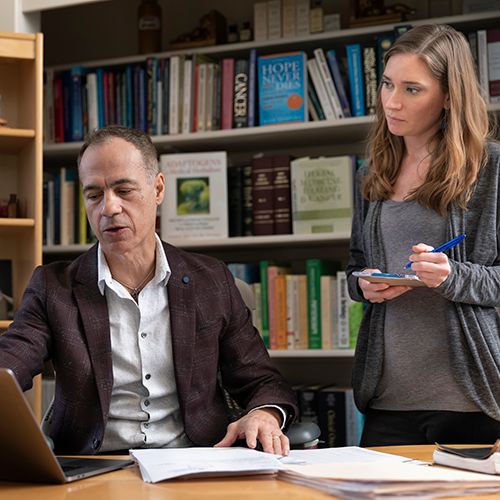Donnie Yance Blog
Integrating Botanical Medicine in Cancer Therapies
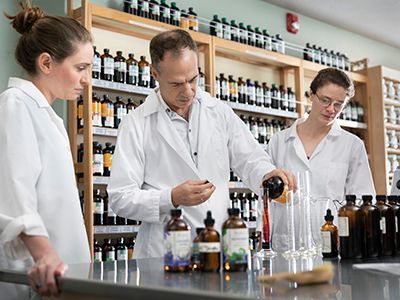
As an herbalist with 25 years of clinical experience, I witness on a daily basis the remarkable healing properties of plants. Although the foundation of my healing approach is deeply rooted in traditional medical philosophies and practices, I draw extensively upon modern scientific research as a vital cornerstone for my work.
The majority of my patients have been diagnosed with cancer, and many turn to me after they have exhausted all that modern medicine has to offer. Merging traditional nature-based medical systems with modern, scientifically based conventional medical knowledge enables me to significantly help the difficult cases I so often encounter. I have an inner drive to do anything and everything I can for each person I work with to utilize all lens and tools of the various toolboxes, finding the pieces that fit together to promote and sustain healing. It is a true integration of the mind and heart, thinking and praying together. Researching and reviewing the latest scientific studies is part of my daily routine, and this continual stream of research contributes to the rationale for my clinical recommendations.
For example, I utilize biomarkers (such as blood and hormone panels, and in the case of cancer, biomarkers specific to the tumor based on pathology and molecular expression) to provide valuable information for formulating protocols that contribute significantly to both quality-of-life and lifespan. Instead of a “one-size-fits-all” approach, I believe it is essential to assess the individual (the “host”), the microenvironment, and the tumor to create a targeted healing protocol. Botanicals are foundational to the healing protocol that I recommend for everyone. This includes using whole herbs, herbal extracts, super concentrated herbal extracts, and herbal isolates, all of which provide my patients with a significantly enhanced quality-of-life, and often, a longer life as well.
As a traditional herbalist, I believe that “the sum of all the parts is greater than any single part.” For this reason, I prescribe combinations of herbs and herbal isolates customized to the individual. A typical protocol includes crude herbs for tea, liquid herbal extracts, concentrated powdered herbal extracts, and isolates. I always combine a powdered extract, either a 4:1 or 8:1 concentration with an isolate. I do this for several reasons: First, the beneficial effects are often superior and more diverse than the single isolate; second, the plant often contains compounds that buffer or reduce the harshness or potential toxicity that the isolate may possess; and third, out of respect for the gift of the whole herb.
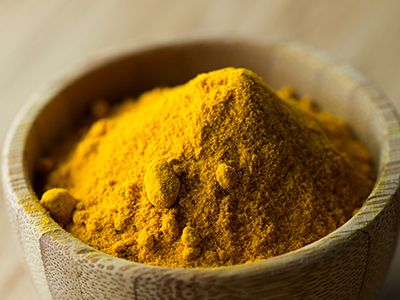
Turmeric (Curcuma longa)
There are significant differences between the actions of drugs and that of botanical medicines (which are often standardized to an active isolated compound). Drugs block, whereas herbs suppress, buffer or reduce; drugs are placed and function, while herbs are positioned and enhance response; drugs often have a single action (although some newer cancer drugs target several pathways), whereas herbs can affect hundreds or even thousands of pathways; drugs even when used properly have side effects and toxicity, while herbs have little to no side effects and toxicity when used properly by a professional herbalist; and finally, herbs are recognized by our genes, whereas drugs are new to our genes and our bodies often struggle with what to do with them and how to properly detoxify them.
In the management of cancer, botanicals (including herbal isolates) have been shown to demonstrate pleiotropic effects. Botanicals alter the microenvironment to optimize the health of the host and not the cancer; directly suppress cancer by targeting intercellular signal transduction pathways, growth factors, oncogenes, tumor suppressor genes, and telomerase; and impede cancer through selective apoptosis, targeting cancer cells while sparing, protecting, or strengthening healthy cells. Botanical compounds also possess an ability to inhibit chemotherapy and radiation resistance. Sometimes these effects can be tied to a specific isolated compound, and other times they cannot.
When managing cancer, we need every possible advantage. Cancer cells are resilient—they undergo genetic changes that provide them with protection and camouflage, and at the same time they acquire properties that enable them to overcome the body’s defense systems. They can even manipulate the immune system to aid cancer growth while suppressing what would otherwise be adversarial to the cancer. Botanical medicines and their selective compounds have the unique ability to address these issues, while concurrently strengthening the host and microenvironment.
As an example, botanicals address issues such as “blood stagnation,” the prothrombotic hypercoagulative state created by the cancer cell to help facilitate growth. Botanicals also effectively target the multitude of proinflammatory pathways that fuel cancer growth, such as nuclear factor kappa b, cyclooxygenase (COX) 2, 5-lypoxygenase, interleukin 6 and 8, and tumor necrosis factor alpha. The herb turmeric (Curcuma longa) has been traditionally used to promote the movement of blood and to remove blood stagnation; research studies have proven that turmeric and its botanical isolate curcumin prevent thrombosis and platelet aggregation, reduce inflammation, support detoxification, and increase immune surveillance. Modern medicine recognizes the importance of all of these factors in managing cancer, but whereas drugs such as COX-2 inhibitors only block COX-2, herbs and their isolates are often capable of down-regulating several of these pro-inflammatory pathways while simultaneously offering other wide-ranging health benefits. In my practice, I combine both the whole herb and the isolate with excellent results.
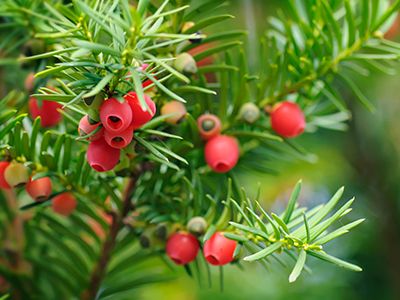
Pacific Yew (Taxus brevifolia)
I also recommend whole herbal extracts when my patients are taking plant derived chemotherapy single compounds. For example, the Pacific yew (Taxus brevifolia) contains twenty-seven different diterpenes, referred to as taxanes. Taxol, the well-known chemotherapeutic drug, is one of these. The other taxanes work together to suppress cancer, reduce toxicity, inhibit multi-drug resistance, and suppress cancer-related angiogenesis. As another example, I combine Catharanthus roseus (Madagascar periwinkle) with any of the vinca alkaloids, such as Vinorelbine. Catharanthus roseus contains a group of more than 70 vinca alkaloids, representing a chemical class of major interest in cancer chemotherapy. I also combine Camptotheca acuminata (referred to as the happy tree or cancer tree) seed and leaf extract with either irinotecan (CPT-11) or topotecan. Campotheca acuminata contains a wide range of anti-tumor quinoline alkaloids, most notably camptothecin, which inhibits topoisomerase, an enzyme needed for DNA replication. Other naturally occurring CPTs include hydroxycamptothecin and methoxycamptothecin from the seeds and leaves. Irinotecan (semi-synthetic) and topotecan are both derivatives from Camptotheca acuminata.
Despite our increased understanding of cancer and the continual development of new, targeted drug therapies, little real progress has been made in the “war on cancer.” And although we are led to believe that we are getting closer to a “cure” for cancer, we are not. Even the new breakthrough drugs being approved are only extending the lives of people with cancer two to three months; these drugs often cause significant side effects and diminish quality of life, while costing as much as $100,000 a month. The reality is that there is no simple answer to cancer. The word “cancer” is applied to what are really hundreds, perhaps even thousands, of different diseases all characterized by uncontrolled cell growth, which over time often mutate into newer, more aggressive forms of the disease. This is why a comprehensive approach is desperately needed that incorporates a full array of botanical medicines.
It’s important to understand that the emphasis of modern medicine is on “curing disease,” which is in stark contrast to the healing philosophy of traditional medical systems. As a result, we are led to believe that the quick eradication of a tumor is a cure, when what actually cures is providing someone with a significantly longer and higher quality-of-life despite their diagnosis. I have many stage four cancer patients living years—and even decades—beyond what was expected, but I can never say their cancer was or is cured, or even in remission, nor do I care to, as that is not my primary objective.
In my experience, scientific knowledge, when combined with wisdom and critical thinking, is invaluable when using botanicals in the clinical setting. Conventional modern medicine has long separated itself from traditional healing systems such as Traditional Chinese Medicine, Ayurveda, and the Eclectic tradition. However, the inadequacies of conventional medicine and the growing interest of people in the wisdom of these ancient healing traditions has created a unique opportunity to rewrite medicine as we currently know it. I believe the time is now ripe for a truly wholistic medical approach to emerge—one that integrates the wisdom of ancient healing systems with the best of modern medicine, including both botanical and pharmaceutical toolboxes.
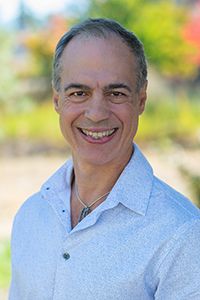
Donnie Yance is an internationally known master herbalist and nutritionist. He received his herbal training through Sequoia College and is a professional member of the American Herbalists Guild. He was trained as a clinical nutritionist through the National Institute of Nutritional Education and holds certification through the National Association of Nutrition Professionals. Donnie is the author of Herbal Medicine, Healing and Cancer and Adaptogens in Medical Herbalism: Elite Herbs and Natural Compounds for Mastering Stress, Aging and Chronic Illness. After decades of extensive research and clinical practice, he developed a unique approach to health and healing called the Eclectic Triphasic™ Medical System (ETMS), now also practiced as Mederi Medicine / Mederi Care. Donnie is also the founder and formulator of Natura Health Products, for which he has created a unique line of therapeutic-grade botanical and nutritional supplements. These products have made a significant contribution to his tangible success in improving the health of his patients.
Learn more about becoming a patient >>
Join the Mederi Center community by signing up for our email list! We send several emails a month with product promotions for patients, practical tips for healthy living, blogs written by our practitioners, information about events, and other news. You can unsubscribe at any time.


